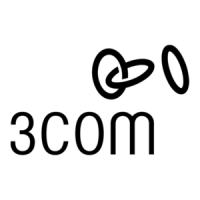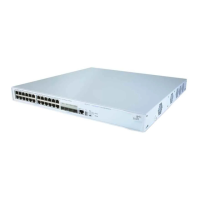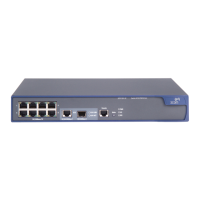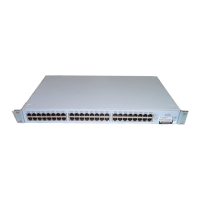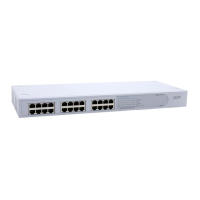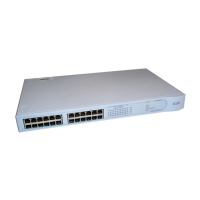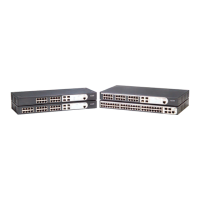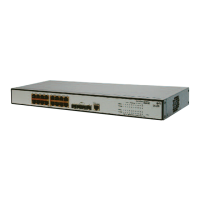1-5
Table 1-2 Description on the fields of the display drv qacl_resource command
Field Description
block
On the front panel,
z From left to right, every four columns of FE ports (total of eight FE
ports) represents a block numbered starting from 0. That is, 0 indicates
Ethernet 1/0/1 to Ethernet 1/0/4 and Ethernet 1/0/25 to Ethernet 1/0/28,
1 indicates Ethernet 1/0/5 to Ethernet 1/0/8 and Ethernet 1/0/29 to
Ethernet 1/0/32, and 2 indicates Ethernet 1/0/9 to Ethernet 1/0/12 and
Ethernet 1/0/33 to Ethernet 1/0/36.
z Every GE port represents a block numbered starting from 6. That is, 6
indicates GigabitEthernet 1/0/49, 7 indicates GigabitEthernet 1/0/50, 8
indicates GigabitEthernet 1/0/51, and 9 indicates GigabitEthernet
1/0/52.
used-mask Number of the used masks
used-rule Number of the used rules
spare-mask Number of the remaining masks
spare-rule Number of the remaining rules
# Apply ACL 2001 to port GigabitEthernet 1/0/49.
<Sysname> system-view
System View: return to User View with Ctrl+Z.
[Sysname] interface GigabitEthernet 1/0/49
[Sysname-GigabitEthernet1/1/1] packet-filter inbound ip-group 2001
Applying Acl 2001 rule 0 failed! Reason: Resource unavailable!(GigabitEthernet1/0/49)
The above output information shows that the application failed because there is no available rule
resource on port GigabitEthernet 1/0/49.
display packet-filter
Syntax
display packet-filter { interface interface-type interface-num | unitid unit-id }
View
Any view
Parameters
interface interface-type interface-number: Displays information about packet filtering on the specified
port.
unitid unit-id: Displays information about packet filtering on the specified unit (when the switch is in a
fabric) or packet filtering on all ports of the current switch (when the switch is not in a fabric). In the
former case, the unit-id argument is in the range 1 to 8; in the latter case, the unit-id argument can only
be 1.
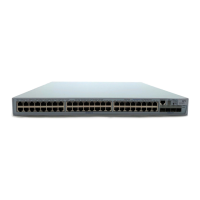
